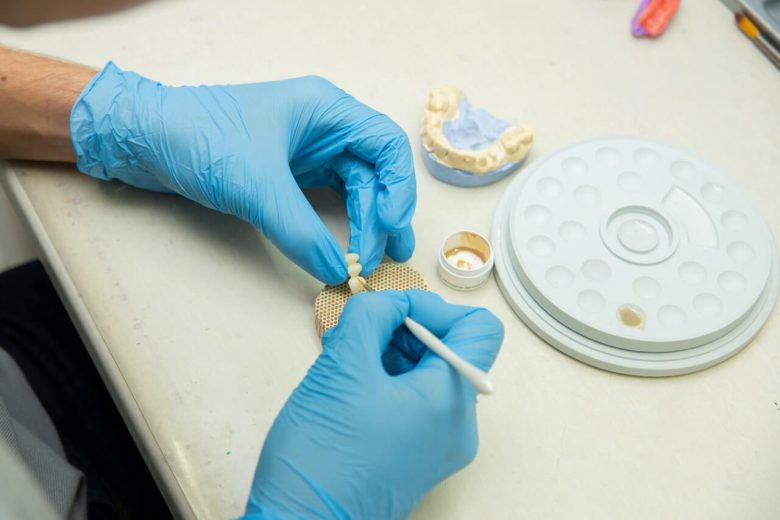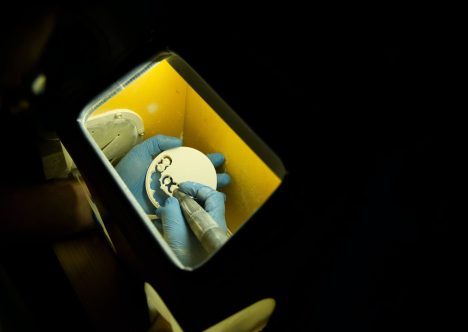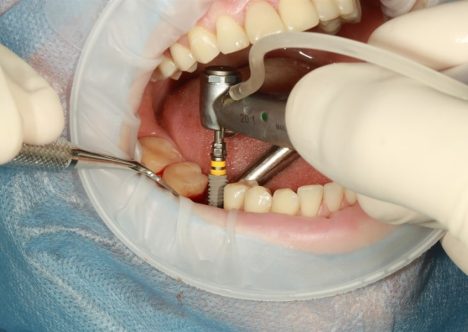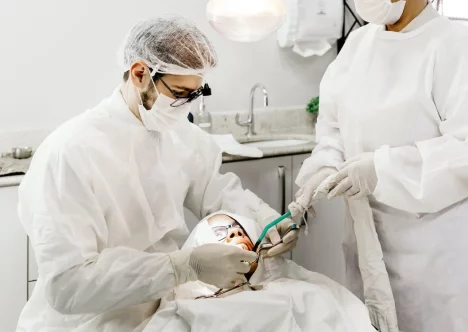Missing teeth can impact not only your confidence but also your muscle tone, facial shape, and overall health. And dental implants have become the go-to dental procedure for replacing missing or damaged teeth. In many cases, removing the damaged tooth and replacing it with an implant is an excellent treatment option due to the high success rates of dental implants.
However, the type of dental implant you need may be influenced as much by your budget as by the condition of your compromised teeth and the bone beneath the gums. As such, Precision Oral Surgery can provide a deeper insight into the best type of dental implant you require to restore your smile and oral hygiene. This article will go over the different types of dental implants and how they work for any dental replacement need.
What Is A Dental Implant?
A dental implant is a prosthetic tooth root that replaces the missing tooth. This artificial tooth root then holds a new tooth or bridge in place. A dental implant that’s secured to the jawbone is the closest thing to a natural tooth since it stands alone without impacting surrounding teeth and is extremely stable. However, since the implanting devices bind with the jawbone, an oral surgeon must examine the patient’s bone structure and density before implant surgery. Hence, you’ll require a clinical evaluation with an oral surgeon at Precision Oral Surgery to ensure that you’re a good candidate for surgery. Your surgeon will also examine your oral health and review your medical history to determine whether implants are the best option for you.
How Do Dental Implants Work?
Implants are surgically fused into the jawbone to create a base that supports dental crowns (artificial teeth). Then, an abutment (supporting tooth) is inserted between the crown and implant to connect all components together.
The implant will blend in naturally with the surrounding teeth since the false tooth or teeth are identical in form, size, and color to your natural teeth.
The structure of a teeth implant consists of three components that serve different functions:
- Implant - a screw-like device that serves as the artificial root.
- Abutment – the connecting post between the implant screw and crown.
- Crown - the artificial tooth that rests on top of the abutment. Crowns are made of porcelain, a tooth-colored material that matches the appearance of natural teeth.
Different Types Of Dental Implants
There are different types of dental implants available, each with its own unique attributes and applications. Discussed below are some of the most commonly used teeth implants:
- Endosteal Implants – Endosteal implants are the most common type of implant that is placed in the bone. A small titanium root holds the replacement tooth in place, similar to a screw implanted in the jawbone. They are generally used to support bridges or removable dentures.
- Subperiosteal Implants – A subperiosteal implant holds the replacement tooth on top of the jawbone and is concealed behind the gum tissue. This procedure is often the best option when there isn’t enough bone to hold the implant.
- Zygomatic Implants – The Zygomatic implant is the least common type of teeth implant available. Zygomatic implants differ from other types of implants because they are implanted in the patient’s cheekbone rather than the jawbone. It’s a complicated procedure and should only be done if you don’t have sufficient bone for the endosteal implant.
- All-on-4 implants – These implants are often suitable for individuals who want to avoid dentures. This dental implant technique involves replacing the upper or lower teeth with four implants. These four implants serve as a support system for a new set of fixed teeth to be placed.
- Immediate Load Dental Implants – Also known as same-day implants, allow placement of a temporary tooth on the same day as the dental implant placement. This may be a suitable alternative for individuals with adequate natural bone and an implant secure enough to support quick placement and pressure on the new temporary tooth. This technique was developed in response to the increased demand from patients for faster treatment.
- Mini Dental Implants (MDIs) – Also called narrow-diameter implants, these are toothpick-sized implants narrower than most commonly used teeth implants. They are used to anchor a lower denture and are placed using less-invasive techniques. They can also provide many of the same advantages as the standard dental implant, such as avoiding bone loss and facial collapse.
Additional Surgeries
In addition to the traditional dental implants, your dental surgeon may also recommend additional treatment based on the condition of your jawbone and unique treatment needs. These additional surgeries may assist in rebuilding bone, restoring the natural jawline, and providing a strong foundation for implant-supported teeth. These additional surgeries may include:
- Bone Augmentation – The bone augmentation procedure involves restoring or regenerating the bone in the jaw when it’s unable to support implants. When a patient’s bone mass is too thin or fragile to keep a dental implant in place, a bone augmentation procedure can assist the bone fuse to the implant and keep it secure. If a dental implant is placed in a jaw with an insufficient bone structure, the chances of implant failure increase.
- Sinus Lift – A sinus lift, also known as sinus augmentation, is a procedure that allows dental implants to be placed more easily. Some individuals require implants yet have had bone loss, resulting in a lack of bone support. Sinus augmentation can provide you with the support you need in such cases.
- Ridge expansion – This surgery refers to widening the residual ridge using bone graft materials. This expansion procedure makes enough space for a bone graft and a dental implant.
It’s important to ensure that the provider you choose to perform your procedure is highly skilled and well versed in the proposed procedure. For this reason, it’s most advisable to have any and all surgical needs performed by an oral surgeon who has been trained to manage complex surgical needs. Our oral and maxillofacial surgeons at Precision Oral Surgery have received considerable training in various oral, facial, and dental conditions. Whether you require a simple tooth extraction or a full mouth reconstruction, our team of surgeons and nurses is committed to providing you with the highest standard of care.
Are Dental Implants Right For You?
Only a dental surgeon can evaluate your candidacy for a dental implant. To be a candidate for teeth implants, you must have healthy gums and sufficient bone health to support an implant. Hence, your oral surgeon at Precision Oral Surgery will examine your teeth and advise you on the best course of action for restoring your oral health.
Dental implants can restore your brilliant smile and give you a new lease on life, whether you have lost teeth due to gum disease, accident, or health complications. Similarly, their cost-effectiveness, success rate, and contribution to an individual’s general health make them one of the best tooth replacement solutions available today.
If you are interested in dental implants, please contact us today. We have two convenient locations in Greeley and Thornton, Colorado.






